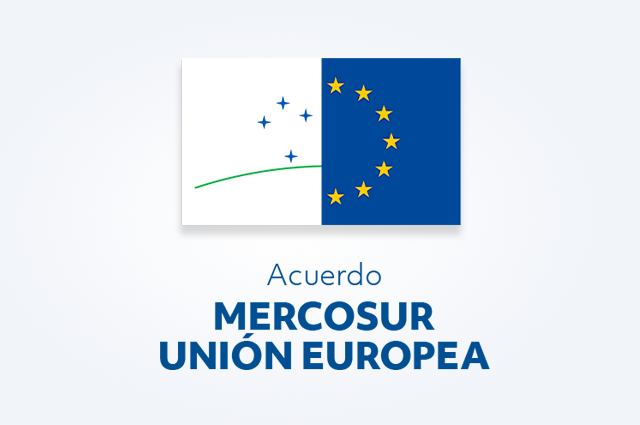MERCOSUR Concludes Historic Strategic Association Agreement with the European Union
Today in Brussels, MERCOSUR concluded negotiations for the signing of a Strategic Association Agreement with the European Union—an unprecedented agreement for both blocs and one of the most important trade deals globally. This marks the end of a negotiation process that spanned more than 20 years and gained renewed momentum beginning in 2016.
The Strategic Association between MERCOSUR and the European Union will create an integrated market of 800 million people, representing nearly a quarter of global GDP, and over USD 100 billion in bilateral trade in goods and services. It represents a milestone for Argentina’s global integration, as it boosts exports from regional economies, strengthens the participation of local companies in global value chains, promotes investment, accelerates technology transfer, and enhances the competitiveness of the economy—ultimately contributing to national GDP growth and the creation of quality jobs. Furthermore, it institutionalizes the strategic relationship with the EU, providing transparency, predictability, and clear rules for economic actors.
The agreement secures MERCOSUR’s key objectives by improving market access for exports of goods and services, while also providing a transitional period for the opening of MERCOSUR markets to European goods and services. In addition, it preserves essential tools for industrial development in areas such as intellectual property, public procurement, and trade defense.
Beyond its commercial dimension, the agreement marks a turning point in Argentina’s international integration and national economic development. It is the result of sustained dialogue, coordination, and mutual understanding—not only among MERCOSUR member states, but also between their governments and the private sector, business chambers, and labor unions. The agreement also strengthens MERCOSUR internally and broadens the scope of its international engagement agenda.
The EU is the world’s largest investor, accounting for over 30% of total global foreign investment stock. It imports 17% of the world’s goods and services and represents 20% of global economic output. This agreement will open up opportunities to export to a market of more than 500 million people, with an average per capita GDP of USD 34,000, and will offer industries and consumers in our region access to a more diverse and higher-quality range of products at more competitive prices.
Key highlights of the agreement for MERCOSUR include:
- Greater institutional quality: It establishes a strategic and permanent political, cultural, and economic relationship with the EU. The agreement includes clear, transparent, and jointly agreed rules that reduce arbitrariness in the application of economic policies.
- Enhanced competitiveness of the Argentine economy: It improves conditions for accessing goods, services, and investment by reducing or eliminating barriers. It also simplifies trade procedures and facilitates access to technology, inputs, and intermediate goods needed to produce value-added products.
- A transition period: The agreement will be implemented gradually, allowing the Argentine economy time to adapt to international competition. For MERCOSUR countries, tariff phase-out periods will average 10 to 15 years, while the EU has agreed to immediate tariff elimination for MERCOSUR—an unprecedented concession in EU negotiations.
- Regional integration: The agreement represents a new phase in the relationship among MERCOSUR countries, boosting intra-regional trade and reinforcing commitments on mobility, regulatory harmonization, and simplification of internal procedures.
- Support for SMEs: It includes special programs to help small and medium-sized enterprises integrate into global value chains, through technical assistance, access to public procurement, joint ventures, partnerships, business networks, know-how transfer, and financial support.
- Promotion of investment: The agreement enhances the flow of foreign direct investment by offering greater legal certainty and regulatory stability. Other countries or blocs that have signed agreements with the EU have seen significant increases in FDI inflows.
Source: Ministry of Foreign Affairs, Argentina




